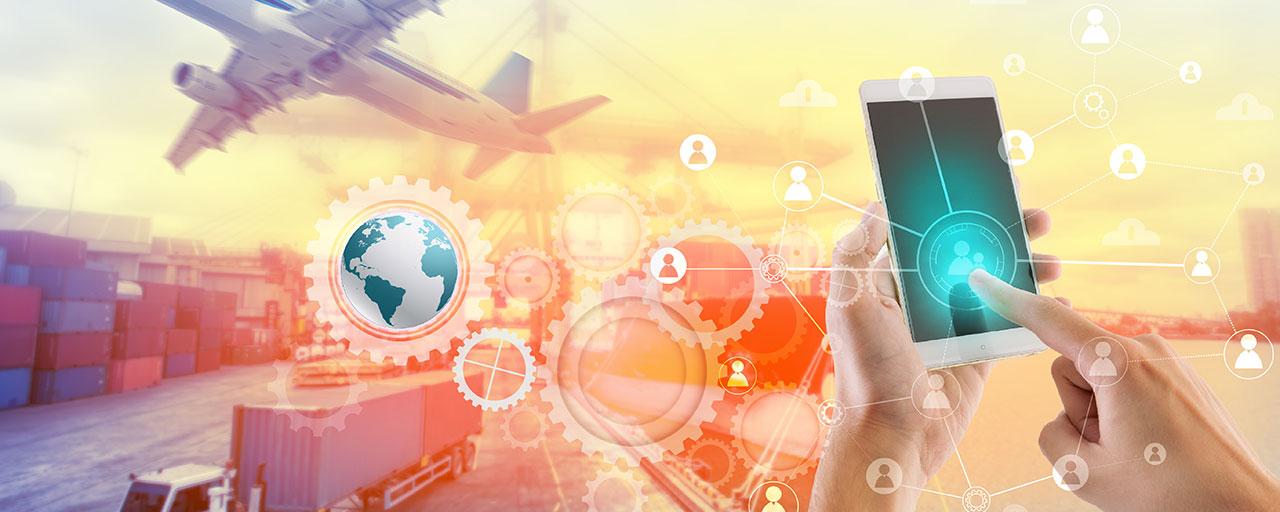Source – mbtmag.com
Salesforce’s Einstein has captured the attention of leaders across verticals, including B2B manufacturers. Launched in September 2016, the artificial intelligence (AI) technology of Einstein has provided breakthrough capabilities for businesses to make smarter, more informed decisions, drive business efficiency and generate increased revenue.
For those new to the AI game, Einstein learns from a business’ CRM data to deliver predictions and recommendations based on unique business processes. In some cases, it even automates business tasks, freeing up time and resources. The application of AI technology for manufacturers has the potential to dramatically improve the supply chain operations by automating costly processes such as forecasting and restocking. And while B2B companies have vast strides to make before they can fully implement the power of AI, we can see the initial effects of the technology on the supply chain — specifically on inventory management.
In March, AI capabilities were demonstrated in inventory management at Coca-Cola.The AI’s visual recognition software automatically keeps track of items in stock and replenishes when necessary, eliminating a need to manually monitor and reorder inventory.
This new AI feature is just a taste of what’s likely to come as companies continue to innovate to meet customer demands. As AI technology advances, it has incredible implications for business efficiency and customer satisfaction.
AI Could Automate Inventory Monitoring
As Coca-Cola demonstrated, AI has the power to eliminate the need for manual inventory checks, allowing businesses to allocate resources and manpower elsewhere. It also grants facility managers an accurate real-time view of product levels at any moment, since they can monitor remotely from their smartphones or tablets.
Taken to its logical next step, this technology could be replicated down to the individual shelf or refrigerator level so companies can automate purchase orders, ensuring that inventory levels are always optimized. The moment inventory drops below a certain standard, AI technology can repurchase orders without any need for manual intervention, increasing operational efficiency.
Another benefit of AI automation is that it removes human error from the equation. When automated, businesses will order the right amount of products at the best possible price, ensuring that no money is wasted on inaccurate or extraneous orders.
Data Mining Pushes Businesses Beyond Standard Personalization
Personalization has been instrumental in redefining customer relationships for both B2B and B2C companies. But as we look at the pace at which market and customer needs are evolving, simple personalization will no longer be enough. With new AI technology, manufacturers and other industries can move beyond this personalization and begin to anticipate and prescribe buyers’ future wants and needs.
AI enables businesses to mine incredible amounts of data faster than ever before. These algorithms optimize themselves over time to garner better customer insights. Beyond this, AI also grants companies access to contextual data – like inventory, the weather forecasts, regional patterns, sporting events, crop reports and more. Combined, the data allows manufacturers and other businesses to optimize shipping, revenue, and replenishment orders, as well as trigger actions based on these insights. Companies can factor all of this data into how they interact with each buyer on a regular basis, establishing a more agile, relevant and beneficial relationship between manufacturer and business buyer. The combination also allows manufacturers to not only stay ahead of their competitors, but actually position themselves as market disruptors.
Companies can go even further by using AI’s predictive capabilities to stay ahead of disruptive market trends. Real-time insight can prepare businesses for the future and ensure customers have what they need the moment they ask for it. By eliminating friction and delivering finely tuned offers, B2B businesses can embrace change and maximize sales using AI technology.
Start Preparing Now
AI models could theoretically automate the entire B2B supply chain, from the extraction of raw materials to the final delivery of products to buyers. But we’re not quite there yet.
For now, B2B leaders should look to Coca-Cola’s example for inspiration on how to apply AI technology in useful, practical ways. That means using commerce platforms that require minimal coding and are agile enough to incorporate new technologies quickly. With a flexible, adaptable platform as the foundation, businesses can run pilot programs to test and iterate over time.
The B2B companies that get in the AI game early will be the first to start generating ROI. It’s clear that AI is no longer a pipe dream — it will bring real results for manufacturers willing to make the leap.
